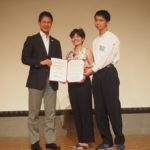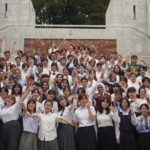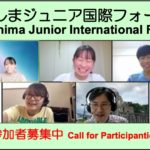Four days for high school students from all over the world to think about peace in Hiroshima
Interview with participants of the Hiroshima Junior International Forum
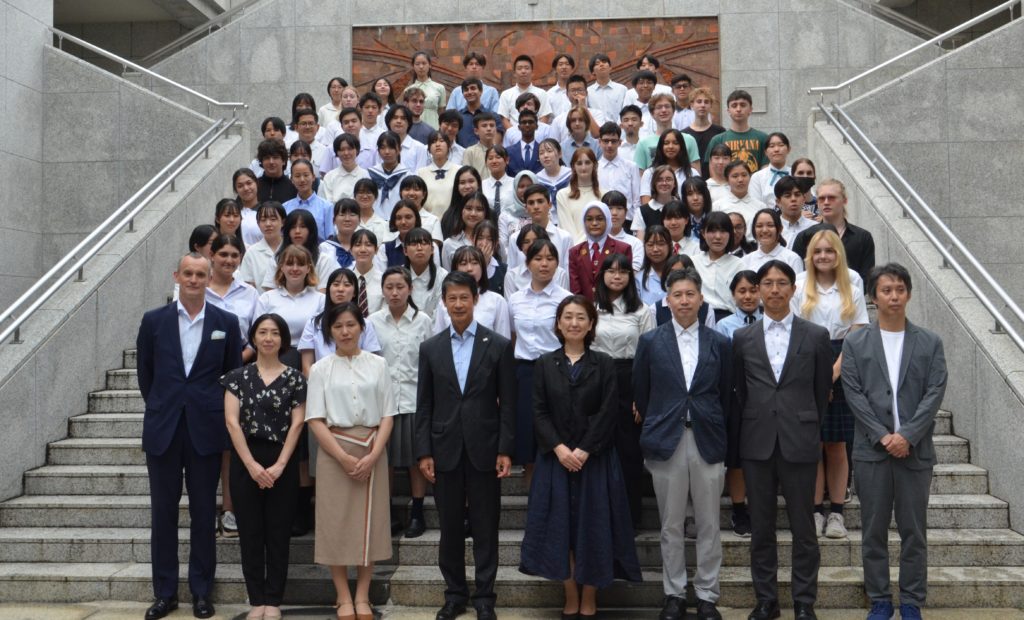
The Hiroshima Junior International Forum is an event aimed at offering high school students from both Japan and abroad the opportunity to discuss international peace and foster the next generation of human resources. We asked Matsumuro Miko and Mexico’s Adam Khattak, both of whom participated in the forum, about their reasons for doing so and what had they learned from the experience.
Discussion on nuclear abolition and presentation of the Hiroshima Declaration
The 8th Hiroshima Junior International Forum was held for four days, from August 15th to 18th, 2023, and attracted 85 participants from 24 countries including Japan, the United States, China, and Mexico to discuss the abolition of nuclear weapons and peacebuilding. On the final day, the participants presented their thoughts on what they would like to do in the future to push toward the realization of peace, as well as their impressions from participating in the forum, and announced the “Hiroshima Declaration.” Finally, they vowed to work together with their colleagues to “protect all precious human life as if it were their own.”
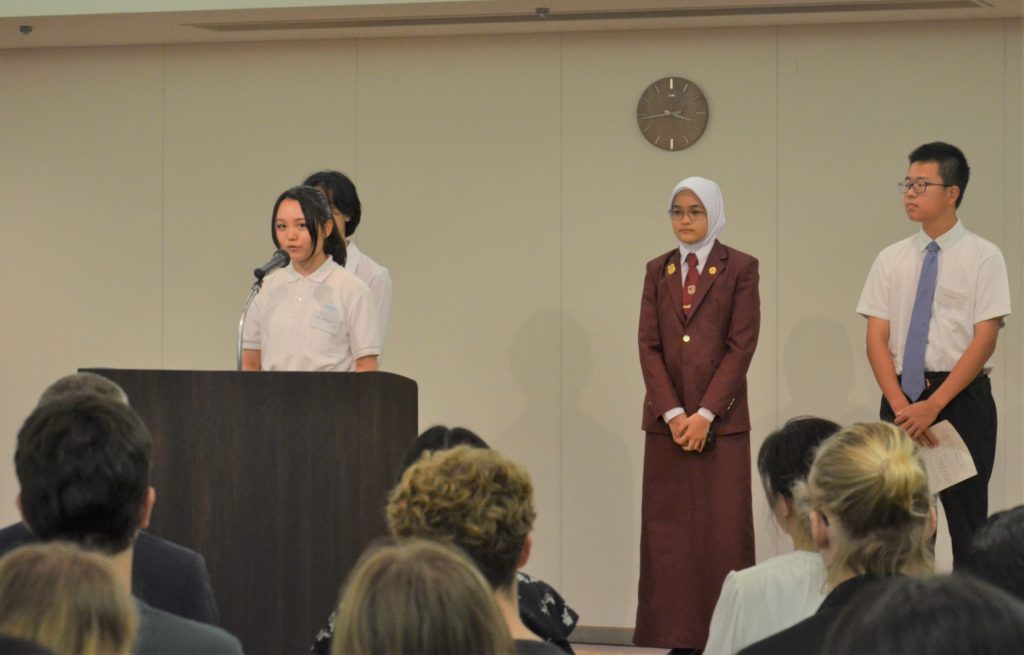
Ms. Matsumuro is presenting the action plan during the report meeting on the 18th
・ What brought you to participate?
Matsumuro: When my sister was in high school, she also participated in the peace education program “Future Leaders’ Program for Global Peace in Hiroshima,” as well as in this forum, and so it got my interest. It is not an everyday opportunity for children of the same generation from all over the world to come together and talk about topics such as peace and the abolition of nuclear weapons. In addition, I studied abroad in Finland for about one year from last summer and some of the students with whom I had the opportunity to study together were people who had evacuated from Ukraine. From that experience, I felt that I needed to be more proactive in learning about the current world situation and peace.
Adam: My high school teacher introduced me to this forum and suggested that it could be exactly what I was looking for. I have long wanted the opportunity to go through an international exchange experience and I also wanted to learn about the effects of nuclear weapons, and since this forum seemed to offer me the opportunity to achieve both of those objectives, I decided to participate. From my point of view, this felt like a fantastic growth opportunity.
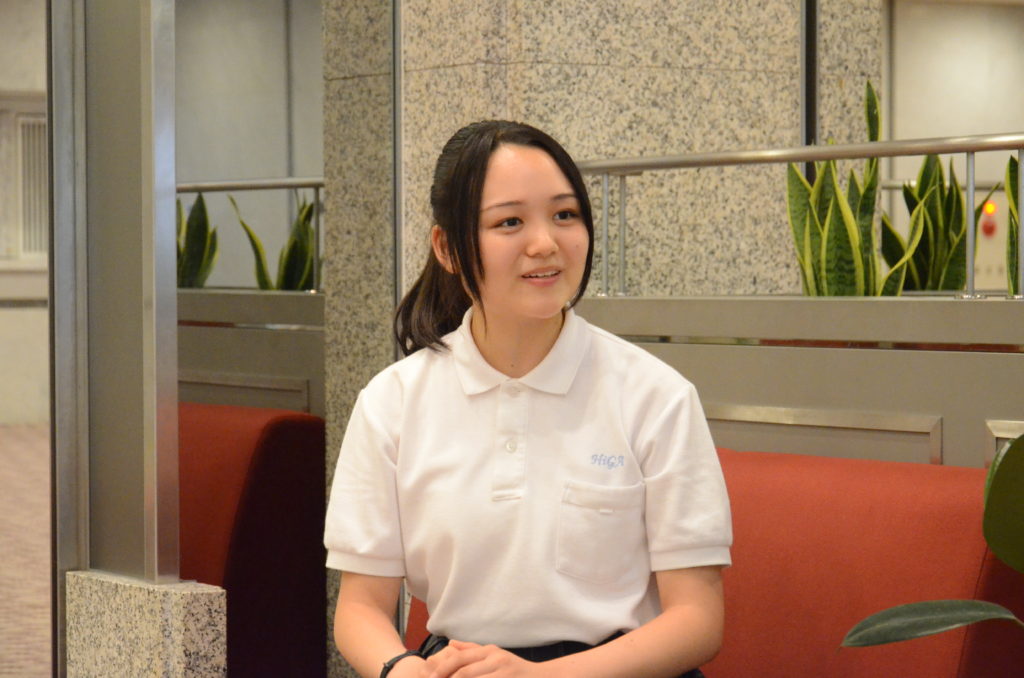
(Ms. Matsumuro Miko)
・ What left an impression on you?
Matsumuro: The discussion to compile the Hiroshima Declaration, which was to be ultimately submitted to Hiroshima Prefecture, was truly interesting. I was really worried about being able to present our ideas in words that respected the true content of the different points of view held by the diverse participants. I am glad that with the facilitator teachers’ lead, we were able to move forward unanimously.
Adam: What impressed me the most was the many ways of thinking, held by the high school students who came from various countries to participate in this forum, that I was able to encounter. It helped me realize that as humans, we are not so different, we are all human beings.
When I took peace education in school, my teacher taught me that it was important to first know the context of any given situation and try to understand it before judging something as good or bad. By combining those teachings with everything I came to realize thanks to the forum, I now believe that if we can engage in dialogue, truly trying to understand our partners, we will deepen our understanding of each other and move toward peace.
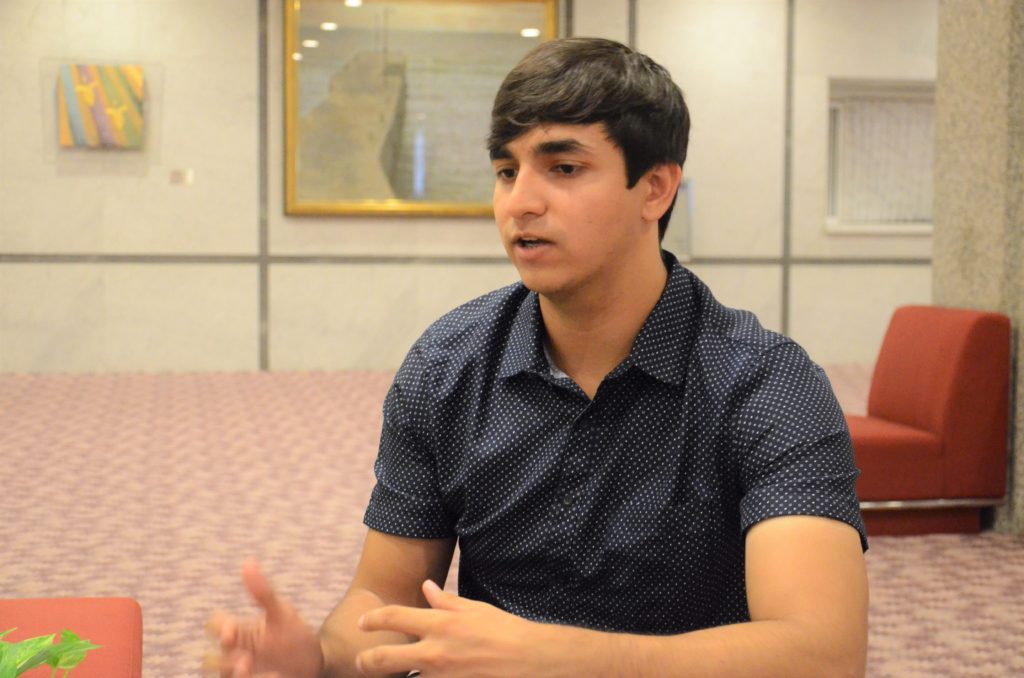
(Mr. Adam Khattak)
・Did you notice any changes after participating in the forum?
Matsumuro: When I asked some students from the United States and Costa Rica who were in the same group as me about their thoughts after visiting the Peace Memorial Museum and the Atomic Bomb Dome, they said that “it was a world they had never seen before, and it was, honestly, shocking.” It was only when they saw the Atomic Bomb Dome in front of them that they realized that such a large building had been destroyed, that so many people had died, and that the scale of the damage was so different from what they knew. I now believe that in order to bridge this gap, students should have opportunities to connect with each other regularly, compare their peace education, and think about why such gaps exist.
Adam: By joining this forum, I got to meet people from many countries. During the group discussion, I felt that changing your perspective on even a single fact changes your reality and the way you perceive it. I was able to learn about the “differences” within our environments and develop a stronger awareness of our “inequality.”
・ What do you want to work on in the future?
Matsumuro: I would like to direct my attention not just to the events of the past, but to focus on reality and think about what is happening in our world and how we should respond. I would also like to remain actively involved in events like this one to help deepen our understanding of peace and nuclear abolition.
I am interested in early childhood education and have carried out several extracurricular activities where I interacted with kindergarteners and lower grade elementary school students. In the future, I would like to take part in activities that allow me to share the things I’ve learned concerning the themes of peace and peacebuilding related SDGs with children.
Adam: I would like to become a civil engineer in the future. I would like to incorporate the different cultures of different countries into buildings and, by using this knowledge, create buildings that eliminate the inequalities felt by people with disabilities.
I would like to share the reality I’ve experienced and the things I learned through this forum with my family and friends. I will also talk about it with the new friends I will make in the future. In this way, I hope to continuously expand my peacebuilding activities in the future.
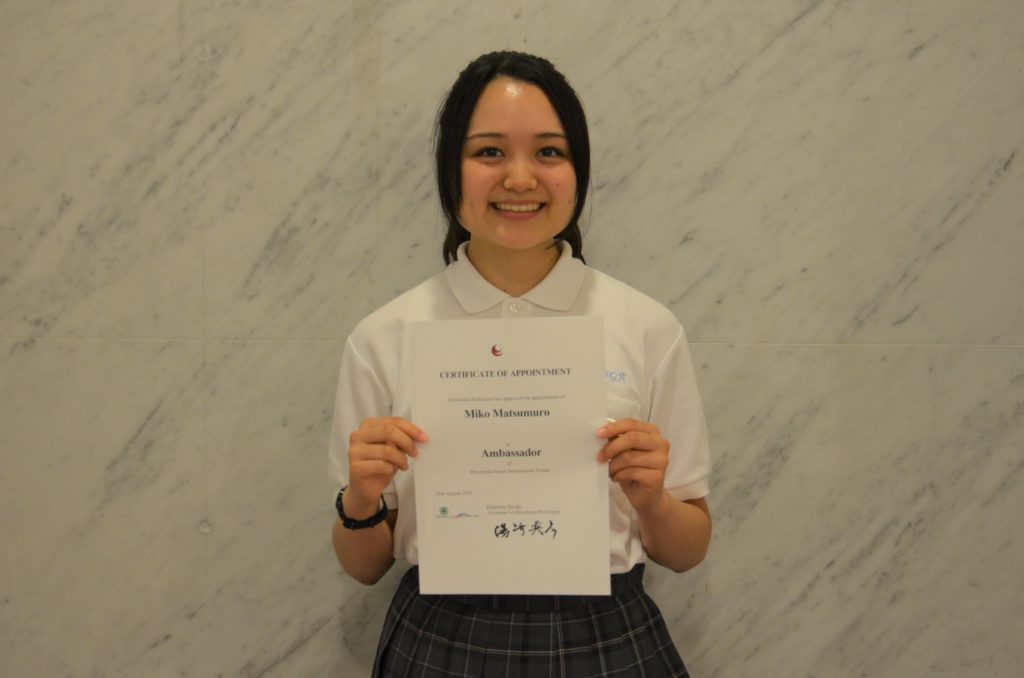
Ms. Matsumuro Miko
1st year student at Hiroshima Eichi Gakuen Senior High School (HiGA). She spent her childhood in Taiwan and moved to Japan by the time she was entering junior high school. Last year, she spent approximately one year studying abroad in Finland. Her favorite thing about Hiroshima is the dialect, and she particularly likes the expression “Jakee.”
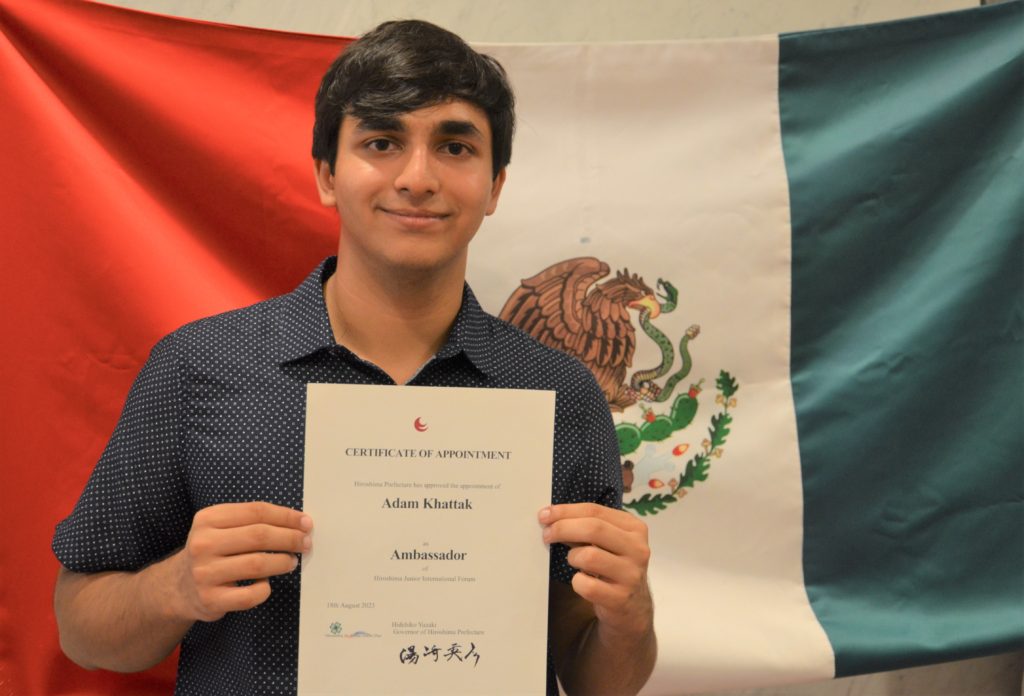
Mr. Adam Khattak
Student at SABES Santa Ana High School in Mexico. His favorite thing about Hiroshima is how clean and beautiful he found it to be no matter where he went. He was particularly impressed by the beauty of the building of the International Conference Center Hiroshima, which served as the venue.
[Related article] The 8th Hiroshima Junior International Forum
https://hiroshimaforpeace.com/en/hjif2023/hjif-declaration2023/
Tags associated with this article



